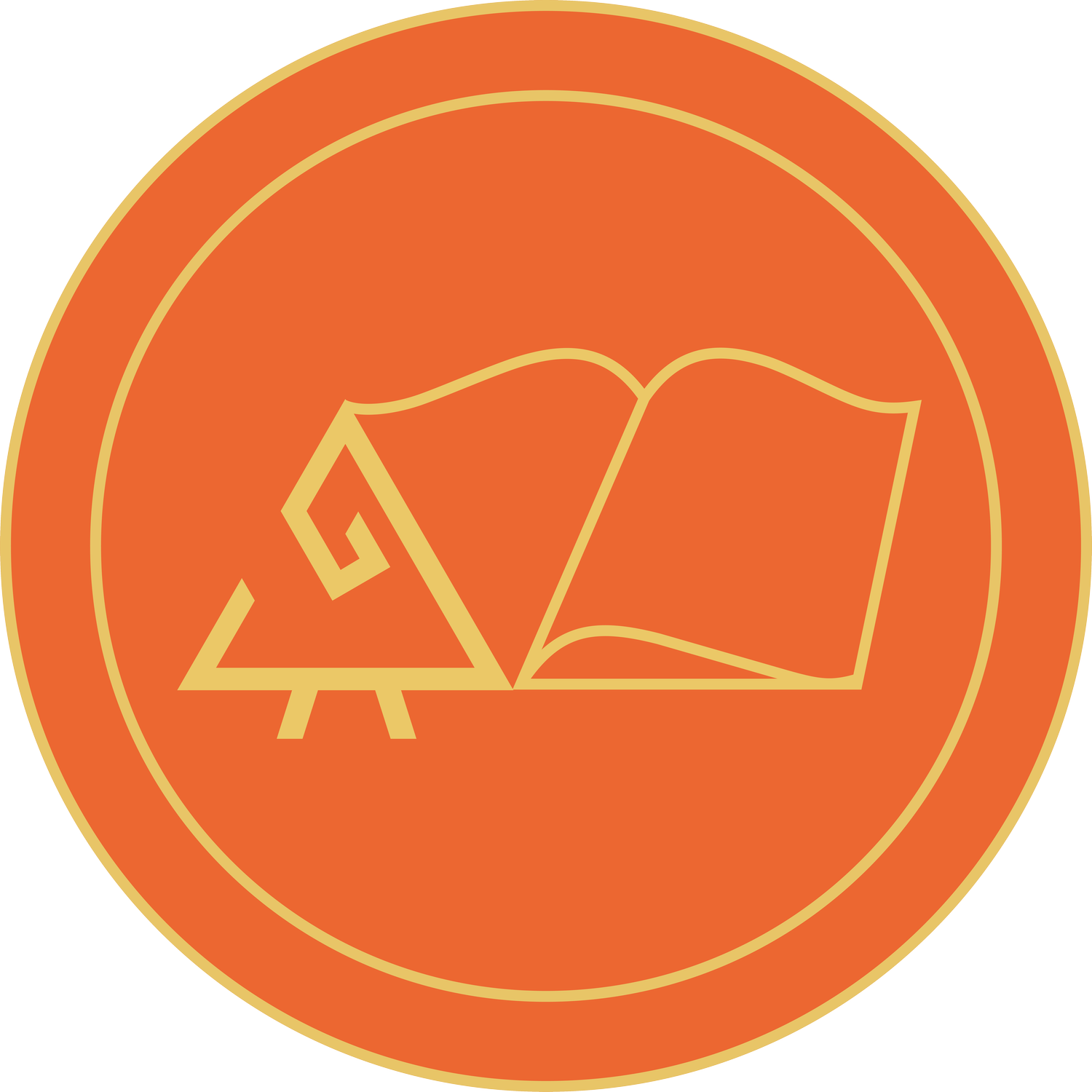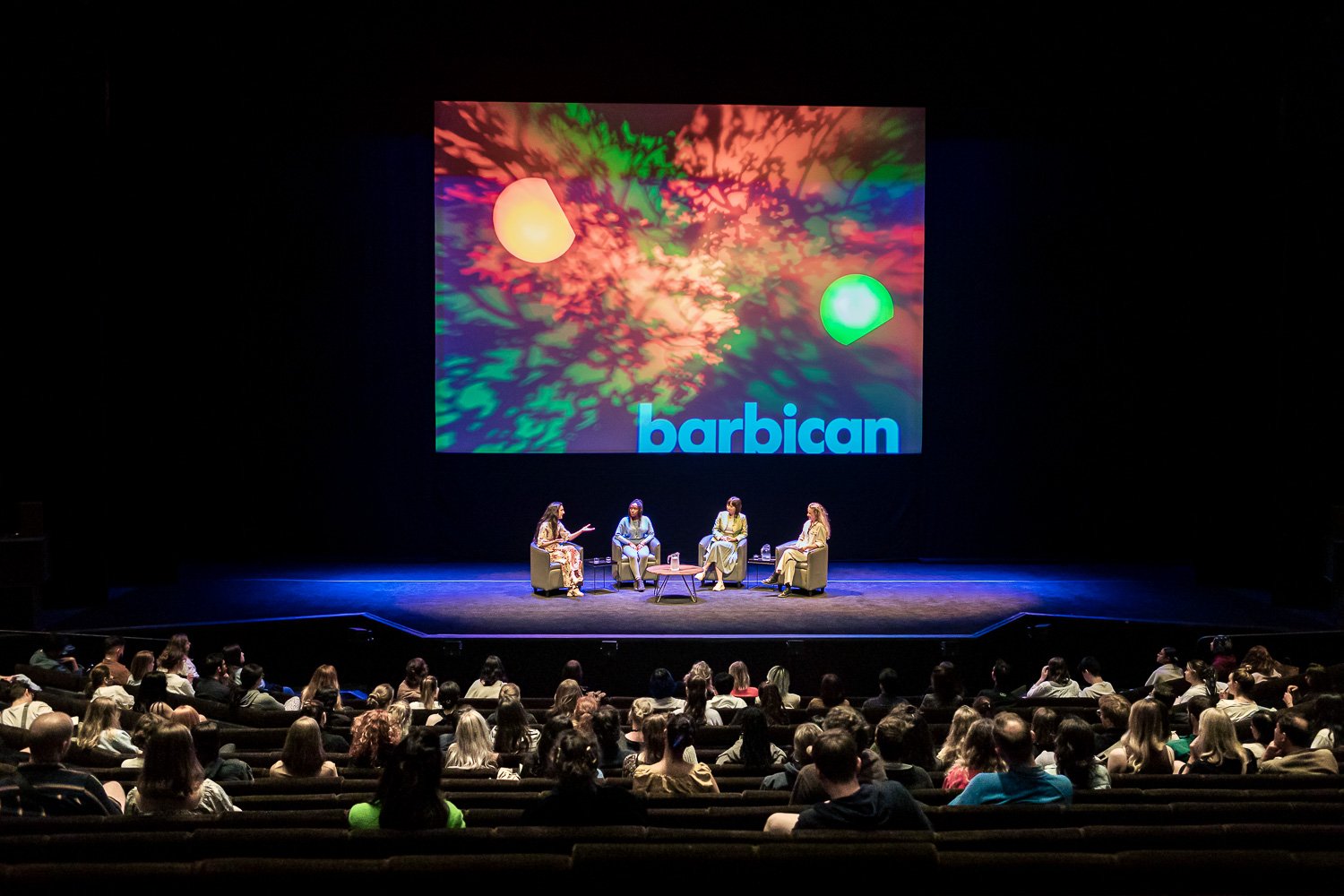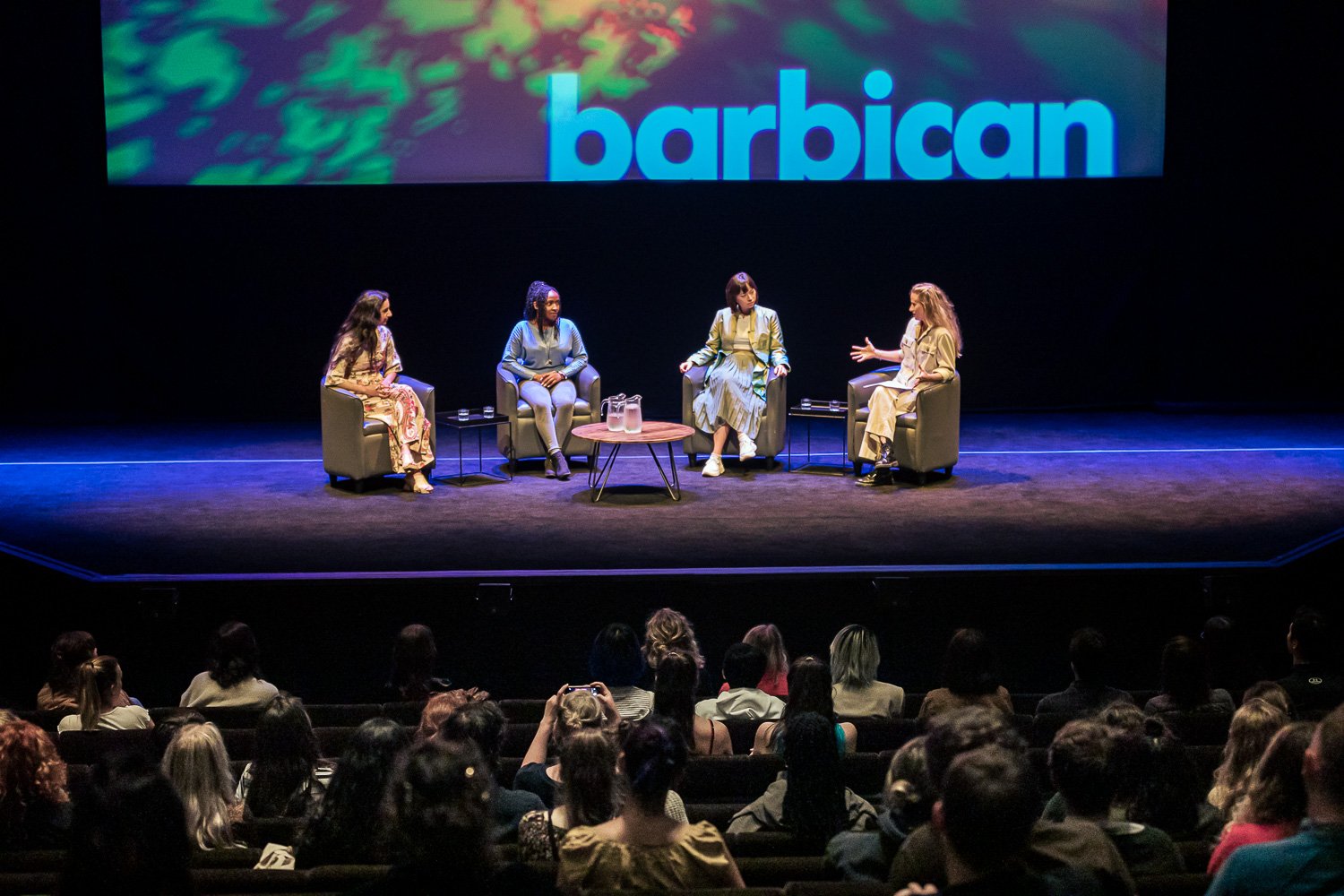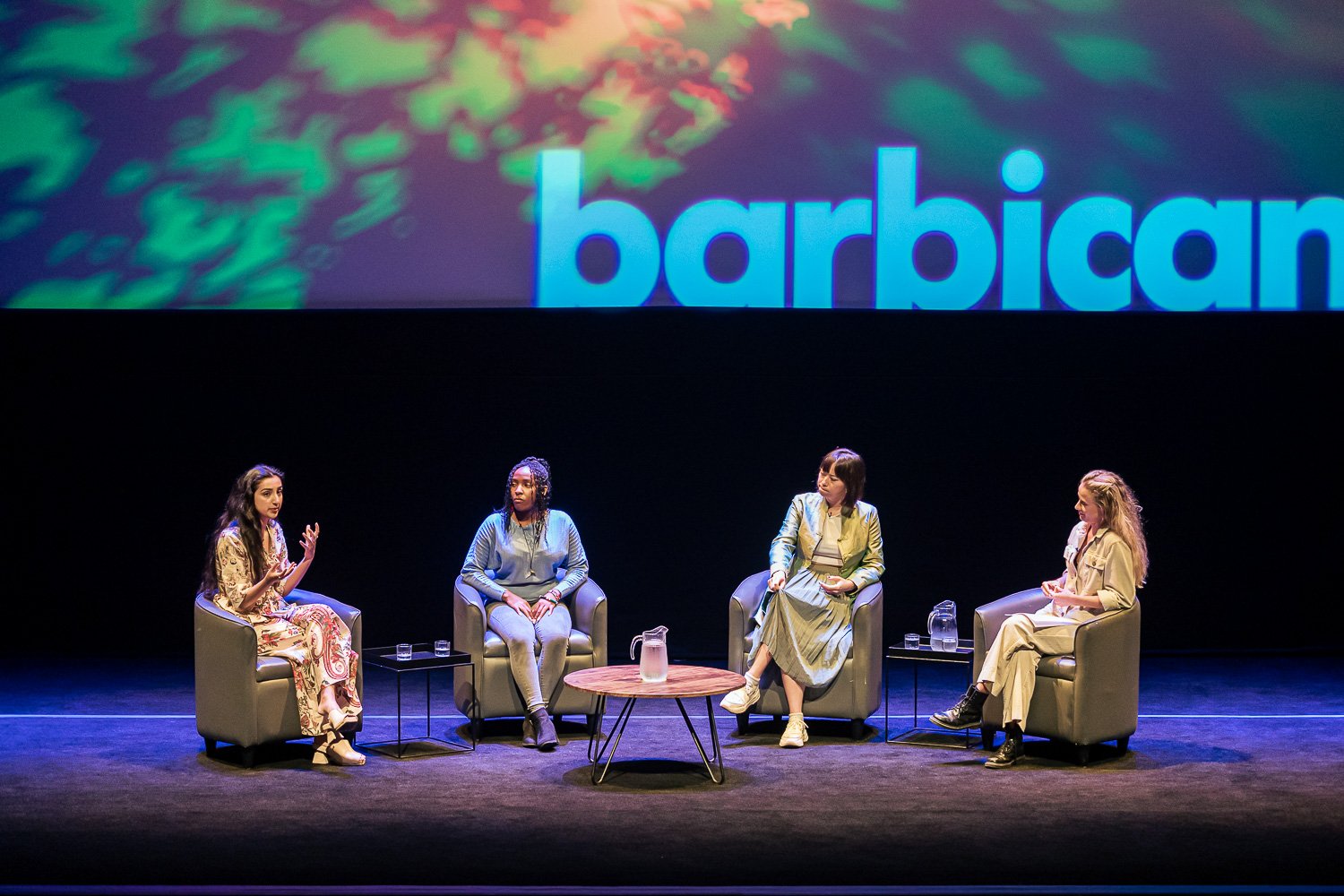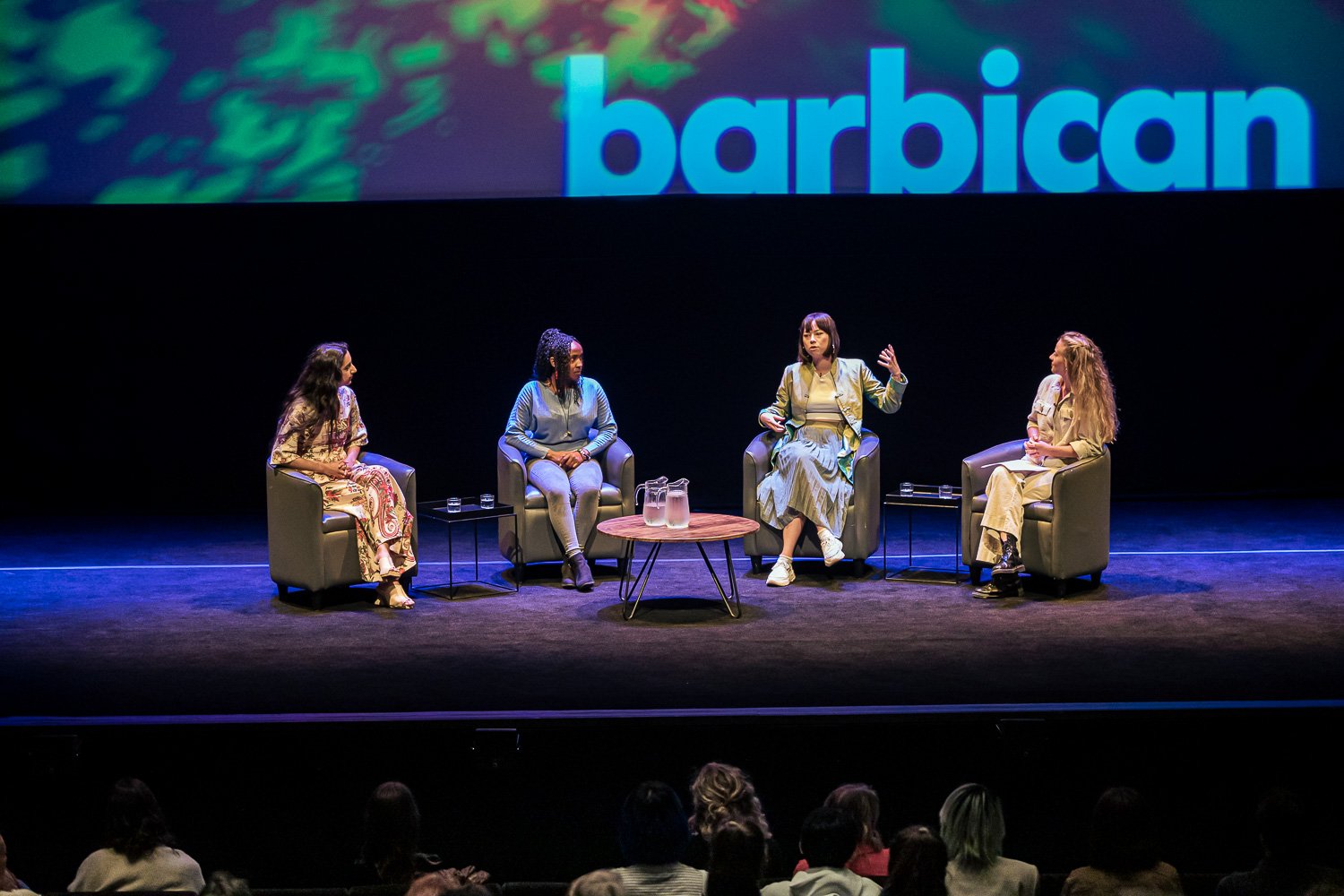‘How To Be An Activist’ at The Barbican
Image: © Hydar Dewachi
As part of ‘Our Time on Earth’, an immersive exhibition at the Barbican, London, champions for change gathered together to discuss ‘Progress not Perfection: How To Be An Activist’. In the midst of a climate crisis and health pandemic, there is a sense of urgency. As the world learns to live with COVID-19, to “build back better”, we are reminded of UN Women’s new “Feminist plan” - a plan that outlines that, moving forwards, to ensure effective gender mainstreaming, we must recognise, value and promote feminist leadership and partnerships that center care and community. With an all female panel exploring our collective responsibility to look out for people and the planet, the Barbican opened time and space to effectively do just that.
The panel held space for activists Tori Tsui, Elizabeth Wathuti and Aditi Mayer - and was hosted by co-founder of earthrise studio Alice Aedy. Throughout the discussion, the question that continuously circled back was: how are we going to experience our time on earth, to support a better future for our earth and its inhabitants? A grounding example of courageous leadership and representation, here are five reflections that came out of the discussion…
Image: © Hydar Dewachi
What’s your story?
We are in a crisis of storytelling; with the power of mainstream media in the limited hands of a few, activist Aditi Mayer enlightens how storytelling often becomes a political project to limit our imaginations and dreams of what could be possible. In the UK, with our day to day lives consumed by navigating ‘the cost of living crisis’, naturally our attention is taken by financial pressures and limited time and access to mental health support. According to McKinsey & Company, Gen Z is experiencing more mental health issues, feelings of isolation, and financial troubles than any other age group. Strong evidence also suggests heightened stigma, barriers and lower access to mental health support in ethnic minority groups. This lack of access to mental health assistance is linked to low aspiration and achievement in young people. For the next generations, things can feel bleak.
With the harsh global warming statistics leading up to 2030, it’s no wonder that we have a tendency to naturally focus on the fears around our precious planet and an unsustainable future that affects the poorest and most vulnerable people the most. Yet, what emerged time and time again during the discussion is that our grief and eco-anxiety can gently co-exist with our stories of joy and happiness. We can bear witness to differing realities at the same time, without denial, to inform steps forwards.
How can we centre joy? How can we come together to uplift and celebrate our small steps forwards? How can we continue to have conscious conversations and use the agency at our fingertips to build community, safety and movement towards a common goal? Inspired by Audre Lord and pleasure activism - how can we inject joy and healing into our activism? Activism is seeped in suffering and sacrifice, yet a life void of joy reaps hopelessness. It’s important to remember that we are not alone.
Image: © Hydar Dewachi
Beyond aesthetics, the panellists explored the use of social media and how it can be a tool and space for community. Whilst it calls to mind modes of accessibility, with regards to who has a phone, language barriers and other considerations, in the same breath, we are reminded of the privileges that those in the Global North have to share and engage with experiences that can ultimately lead up to extensive coverage and actionable change in real life. Education and awareness is key here. We are also reminded to interrogate algorithms which have prioritised knee jerk reactions. In this dire attention economy, we need to create spaces for nuanced and true dialogue, which is why engaging with spaces like these feels so fulfilling and motivating.
As we are encouraged to reflect on our own activism journeys, there is recognition that activists are held to incredibly high standards, as choosing to use your voice often opens one up to being held accountable across the board. Yet, to be imperfect is being human. We cannot protect what we don’t have a connection to - so, what’s your story? Your unique perspective holds a potential truth that someone else can also identify with. This connection is key to a shared understanding, and the passing on of actionable knowledge.
Image: © Hydar Dewachi
How can we hold space for joy?
Environment and Climate Activist Elizabeth Wathuti roots her journey in hope. On the ground, with her work as the founder of the Green Generation Initiative, she carries a sense of gravitas. Hope is rooted in action, as she draws our attention to the interconnections of the climate crisis and the present, direct impact on those in the Global South. She encourages us to make choices with people on the ground in mind.
Intersectional Climate Activist and Mental Health Advocate Tori Tsui encourages us to move away from the homogenisation of activism and social media echo chambers, by recognising our gifts and the things that we love, to ultimately diversify how we achieve climate action. To create sustainable change, we must play to our strengths and band together. How can we see ourselves as part of a community, and immerse ourselves in an ecosystem that gives us permission to opt out when we need to? There's a stark difference between individualism, acting for oneself, and individuality, a vision for oneself that inevitably leads to collective liberation.
To nourish meaningful change however, we need to call in accountability.
How can we keep those in power accountable?
Photojournalist, Labour Rights Activist, and Sustainable Fashion Advocate Aditi Mayer recalls her journey of consciously becoming an activist. In 2013, an eight story garment plaza in Bangladesh, Rana Plaza, collapsed. This coincided with her first year of college, typically a season ripe with a political coming of age. Her identity and relationship with fashion was changing, and she began to think about her experience as a woman of colour and her connection to front line communities. For Aditi, her activism has been a journey of interrogating power, challenging the status quo and holding corporations accountable.
Aditi also reflects on the stereotypical criteria to be an ‘activist’ - she challenges the centralisation of power from a white lens, and encourages us to recognise that we all have perspectives and interpersonal connections with community and our natural world.
Through the lens of fashion, the momentum of racial justice and human rights surface. Aditi enlightens some of the labour pay injustices and poor working conditions of those working within an underground fashion industry and its informal economy. Fast fashion normalises this model and damaging mode of production. Aditi encourages a movement towards storytelling and listening to the voices of the garment workers; she also highlights the necessity of establishing and enforcing a minimum wage, ensuring modes of accountability and legal measures across the supply chain.
In the same vein, Elizabeth Wathuti draws our attention to her recent participation at the World Economic Forum, and how leaders and people in positions of power don’t see, feel or hear the urgency of the crisis at hand. She recalls how pledges are made and not met, as there is typically a disconnect in the pace and skill-set within the movement. She calls for international solidarity and our intention to keep the stories on the ground alive.
Image: © Hydar Dewachi
What do we do when we feel overwhelmed?
Throughout the discussion, we are encouraged to see ourselves as part of a global community. We are affirmed that there is no need to try to create change alone as we are part of an ecosystem that can pick up where you left off. To ease the tendency of burn out, we’re affirmed to be mindful of progressive action - it’s a marathon not a sprint.
Sometimes, our disappointment, frustrations and anger can be used as fuel to take meaningful action. With the present not liveable for the Global Majority, collective action is necessary in order to ignite a snowball effect and multiply progress.
How can we maximise our impact?
In events like COP 26 - the UN Climate Change Conference in Glasgow, UK, the notion of ‘who has access?’ came to mind. There are countless expenses (like travel and accommodation) and obstacles faced when it comes to established events like this. We are reminded that it is a privilege to show up and we must demand accessibility and the support to navigate these spaces, particularly when emerging speakers are also next to people delivering speeches who have growing teams and investment behind them. These spaces can inevitably feel intimidating. How do we open up sustainable and re-distributional funds that can help to maximise impact?
With many organisations setting up initiatives to empower and invest in communities that are most vulnerable, it’s in spaces like these where passionate leaders reflect the hopeful voices of change and how we must strive to live out Our Time on Earth.
Our Time on Earth is open until 29 Aug at the Barbican Centre. Get your tickets here.
